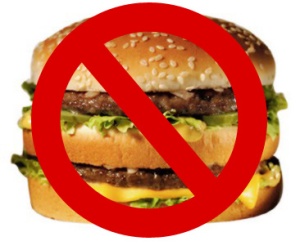 Six months later, it looks like my strict diet is resurfacing.
Six months later, it looks like my strict diet is resurfacing.
Actually, my diet has been getting corralled for weeks now, and then last month I caught some flu-virus and was sick for nearly three weeks, and eating lost its appeal. That was the first time in years that I got sick like that, where I just couldn’t shake it off, but reminded me of back before I stopped eating gluten when I used to get virus after virus. I would be well for a couple of days and get flattened by the next thing going around. It wasn’t pretty.
I decided mid-virus to go back to my former restricted diet, keeping only a few things that didn’t seem to be bothering me too much. But I ate some food this last weekend that really screwed me up for a couple of days, which is uncomfortable but also excellent motivation for sticking to my diet.
Here’s my current list of restrictions that I’m going to stick to as best I can, though it’s not as easy as it used to be since I had gotten accustomed to eating some of them the last few months:
- Gluten/gliadin grains (wheat, barley*, and rye*)
- Oats (so-called “gluten-free” or not, both make me feel like I’ve been punched in the gut)
- Nightshades (tomatoes, peppers, potatoes, eggplant*, kava kava*, tobacco*)
- Eggs (unless baked into something)
*Items I didn’t try during my food challenge, but had previously reacted poorly to them so will avoid now.
I don’t feel the need yet to be as strict as I used to be, for example I seem to be able to get away with some potato starch/flour in my gluten-free baked goods, and some french fries, though I’m not sure how long that will last as those items were the last to go in my nightshade-avoidance diet.
I’m still eating corn on a fairly regular basis at this point without obvious reaction, and I haven’t had a problem with shellfish, though I’ve only had shrimp, scallops, snow crab, and calamari. I’m looking to trying some crab as the focus of a meal to see how that does with me. I haven’t had much citrus, so am not sure if I should be avoiding it or not. Being able to keep some items from my former forbidden list, at least for now, makes me feel better about it.
It’s been an interesting ride, this major food challenge. Before I started it, I thought it would kill me, or at the least, I’d be really very sick the whole time. But it wasn’t that bad and I actually had a hard time stopping once I got started. I have been feeling better though since I cut back on the other foods, and even lost some weight. Hopefully, I’ll be able to trim off the rest of that which I gained since this crazy “eat-everything” diet began last May!
